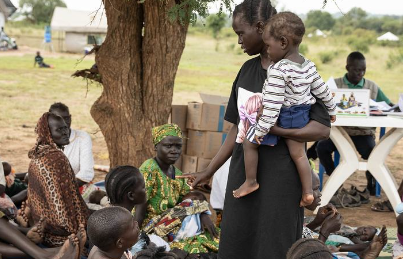UN Report Reveals Gender Gap in Global Social Protection
On October 15, 2024, a United Nations Women’s report revealed that around two billion women and girls around the world lack essential social protections such as cash benefits, healthcare, and pensions. This report was released just before the International Day for the Eradication of Poverty, drawing attention to the urgent need to address these inequalities.
Why Social Protection is Important
Social protection refers to systems that provide financial support to individuals, especially during difficult times, to protect them from poverty and economic instability. This can include things like unemployment benefits, healthcare, and pensions. The report shows that when women do not have access to these protections, they become more vulnerable to poverty and face greater economic challenges.
The Growing Gender Gap in Social Protection
Although there has been some progress since 2015, the gender gap in access to social protection has widened, especially in developing regions. For example:
- More than 63% of women globally give birth without receiving maternity benefits.
- In sub-Saharan Africa, this number rises to 94%, meaning almost all women in that region give birth without proper support, affecting both their economic stability and their children’s welfare.
How Crises Worsen the Situation
Crises like conflict, climate change, and rising inflation make the situation worse for women. Since 2022, inflation has hit women harder, especially those aged 25-34, who are 25% more likely than men in the same age group to live in extreme poverty. Women living in fragile or conflict-affected areas are especially vulnerable, with poverty rates 7.7 times higher than women in more stable areas.
Government Actions and Progress
Despite many efforts, only 18% of the nearly 1,000 social protection measures introduced globally have focused on improving women’s economic security. However, some countries have made progress:
- Mongolia extended maternity leave benefits to informal workers.
- Mexico and Tunisia included domestic workers in their social security programs, improving their access to financial and healthcare protections.
The Call for Gender-Responsive Systems
The report urges governments to develop gender-responsive social protection systems that address women’s specific needs, such as maternity benefits, equal access to healthcare, and protections against poverty in crises. By prioritizing women’s needs, these systems can reduce gender inequality and empower women economically.
Financial Challenges in Low-Income Countries
While many countries can improve social protection systems, low-income nations face financial challenges. It is estimated that they would need $77.9 billion to create a basic social protection floor for everyone. This lack of funds makes it difficult for these countries to provide adequate support to women.
Closing the gender gap in social protection is essential for reducing poverty and empowering women. By implementing gender-focused policies, governments can improve the lives of women and girls, helping them become more resilient to economic challenges and crises.
Month: Current Affairs - October, 2024
Category: Reports & Indexes Current Affairs








